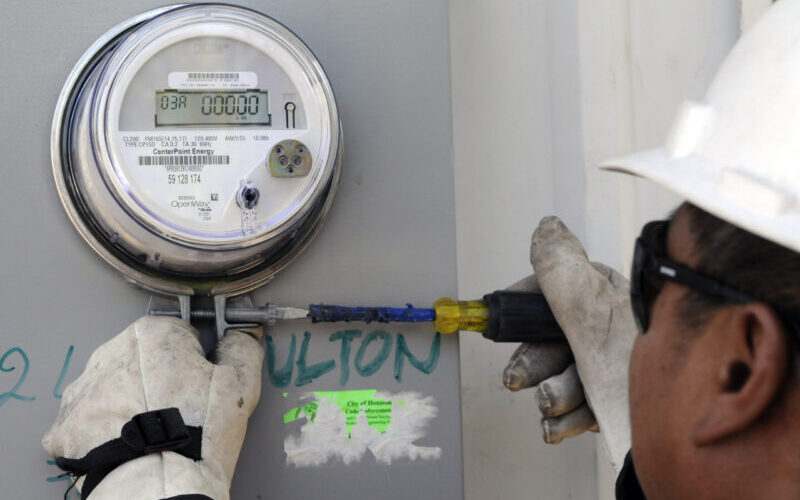Sparkies say the companies handling the smart meter rollout are pushing down wages to the point of putting lives at risk. Zacharias Szumer investigates.
Australia’s smart meter rollout could end in tragedy for workers or a member of the public unless standards and rates are lifted, industry insiders say. The industry is plagued by such poor rates that qualified electricians are stuck between cutting corners on safety or making a pittance, MWM has been told.
MWM has seen evidence that meter installers in NSW are sometimes making less than $100 per day, or half the minimum wage of $24.95 per hour.
While the rollout is basically finished in Victoria, other states and territories lag behind.
Smart Meter rollout status by state
| State or Territory | Smart meters installed | Installation rate |
|---|---|---|
| ACT | 93,344 | 40.27% |
| NSW | 1,929,057 | 39.17% |
| QLD | 1,285,299 | 42.63% |
| SA | 488,325 | 46.49% |
| TAS | 279,296 | 78.06% |
| VIC | 3,247,638 | 99.12% |
| Nationwide | 7,322,959 | 56.96% |
The government wants every house in Australia to be fitted with a smart meter by 2030.
Current conditions
Over the past fortnight, MWM has talked to over ten electrical contractors working on the smart meter rollout. NSW-based contractor Mike* told MWM that electricians are promised that they’ll make between $700–$1000 a day installing smart meters.
MWM has also seen promotional material that promises, “Long-term term reliable work, no crawling under floors or in roof spaces and career growth opportunities.”
Given these promises, many sparkies get set up with the required company structure plus additional qualifications and equipment – something that “often exceeds” $10,000, Mike said, adding,
These substantial up-front costs can leave metering contractors feeling trapped in the role, despite the lower-than-expected income.
While contractors sometimes earned between $800-$1000 per day, such days were few and far between, he added. It was far more common to make less than $500, and that’s before you subtract costs like fuel, vehicle insurance and everything else.
MWM has seen evidence Mike was sometimes paid under $100 a day.
“The pay rates must be designed by an algorithm that’s been programmed to only factor the most favourable installation conditions they could have ever dreamt up,” Mike said, adding that business expenses “aren’t considered at all” in set rates,
The focus is solely on the time it takes to complete the job, without factoring in the true cost of running our businesses.
Another electrician, Sam, said he’d experienced multiple days of being paid $150-$300 before finally giving up and leaving the industry.
A noose around the neck
Most sparkies said the main cause of such days is the number of jobs that can’t be completed.
A range of factors can prevent meter installation, from old buildings with electrical faults to anti-smart meter residents who don’t let electricians into their properties. Payslips shown to MWM show that contractors are paid between $26 and $36 for attending jobs that can’t be completed.
This rate is fixed even though it may take well over an hour to reach a destination and discover the reason a job can’t be completed, several contractors told MWM.
Mike said:
These tactics are driving technicians to rush work under unsafe conditions that could lead to serious injury or death.
“I’ve spoken to a few techs that I’ve met while driving around, some tell me that they have heard that techs are skipping the initial testing procedure to speed up the job,” he added.
Another contractor, Pete*, said he was aware of several incidents that had already occurred.
“One guy turned on a circuit breaker that was originally off and became financially liable when the owner’s kitchen burnt down,” he said.
“One guy didn’t tighten any connections on the meter he installed, which could’ve led to a fatality or fire.”
Other contractors, while not sharing details of incidents, agreed with Mike’s sentiments, “The rates aren’t in line with the work required … [so] contractors are putting themselves at risk by skipping steps,” said Eric*.
“We’re in a rush … because the margins are so low, it’s easy to miss something. People do take shortcuts; I was taking shortcuts,” Sam* said, while Allen* said the low piece rates made it “financially unviable” for contractors to issue defect notices at every house where they found electrical faults.
The advertised earning rates just weren’t consistently achievable without burnout or corner-cutting, he said. In terms of getting the rollout completed safely and on time, “They’ve tied a noose around their necks.”
Give ’em an inch, they’ll take a meter
Like much of today’s economy, the metering industry is a vertically disaggregated beast. Here’s a little chart to illustrate the parts that are relevant here:
Retailers: The ones who send you your electricity bill. They don’t own the meters.

Metering providers: They own the meters and contracts with the retailers to install them.

Field service providers (FSPs): Paid by providers to recruit electricians to install smart meters.

Those are some pretty big players involved in the metering game.
Canadian multinational giant Brookfield has over a trillion dollars in assets. IFM Investors, owned by 28 Australian not-for-profit pension funds, has about $86 billion.
As Mike told MMW, “There’s a reason world-class asset managers own the meters,”
because nothing beats a captive customer base and predictable, growing margins.
Sham contracting
Electricians mainly deal with field service providers (FSPs), who employ them as contractors.
However, several contractors told MWM that the arrangements with FSPs verge on ‘sham contracting’.
MWM has seen evidence that independent contractors are not permitted to switch to a new FSP without either a month’s stand-down period or a letter from the previous FSP.
Multiple FSPs simultaneously introduced the stand-down period to ensure that contractors couldn’t jump between them to seek better wages, Mike said.
Another contractor, Andy*, said the contract’s electricians’ sign is “not worth the paper they are written on as job conditions, procedures, and rate schedules can get changed with a day’s notice and no negotiation”.
“If the work volume drops, then they will drop the rates, because they know the contractors are desperate to keep their roles,” he said, adding that in his eyes, FSPs were employing dirty money-making tactics.”
*All names have been anonymised to protect identities.
MWM contacted Skilltech and Service Stream for comment, but didn’t receive any response.
Zacharias Szumer is a freelance writer from Melbourne. In addition to Michael West Media, he has written for The Monthly, Overland, Jacobin, The Quietus, The South China Morning Post and other outlets.
He was also responsible for our War Power Reforms series.

